Guidance on preventing the spread of invasive non-native species, for horticulturalists, maintenance gardeners, garden designers, nurseries, growers, landscapers and professionals engaged with planning, land management and plants.
Invasive non-native species
Over 2,000 plants and animals have been introduced to Great Britain from all over the world by people. These are known as non-native species. Most are harmless but around 10-15% become invasive non-native species which spread and have a harmful impact.
|
Invasive non-native species are one of the top threats to global biodiversity, cost the British economy over £2 billion a year, and can even harm our health. Invasive plants can harm native plants by spreading pests and plant diseases, and competing for space, light, nutrients, and water. This in turn can harm other species which rely on them, including birds, butterflies, and other insects, and could threaten the survival of rare plant species. |
Be Plant Wise
Follow three simple steps to help prevent the spread of invasive non-native plants:

Know what you grow
Choose the right plants for your garden, pond and water features. View guides to plants to use in place of invasive non-native species.

Stop the spread
Keep your plants in your garden - don't plant them, or allow them to grow, in the wild. You could be breaking the law if you do, learn more about restrictions on non-native plants.

Compost with care
Dispose of your unwanted plants, roots, weeds, seeds, and seed heads responsibly. Find out which invasive plants can't be composted and how to dispose of them safely.
Educating your clients or visitors
By educating gardeners on invasive non-native species and how they can help prevent their spread, you can help reduce future harmful impacts. The following information and resources are available to help you:
- Examples of the impacts of invasive non-native plants to demonstrate what can happen if they are spread beyond the garden, and information on legislation relating to certain plant species (see Restrictions on non-native plants, above).
- Be Plant Wise tips including options for managing invasive non-native plants if they can’t be removed from a garden, such as deadheading them after flowering to prevent their seeds from spreading.
- Free Be Plant Wise materials to give to your clients with information on the above.
- RHS guidance on invasive non-native plants.
Please contact nnss@apha.gov.uk if you would like to order materials, have any questions that aren’t covered on these pages, or would like to suggest further tips for other professionals on talking to clients about this issue.
Restrictions on non-native plants
A number of non-native plant species are restricted in GB:
- 36 plant Species of Special Concern to which a number of restrictions apply. Find out more about restrictions in England and Wales and Scotland.
- 3 plant species banned from sale (external link) under the Wildlife and Countryside Act in England.
If you have any of these species in your garden you should treat or dispose of them where possible and not intentionally allow them to grow or spread outside your land.
In addition, it is illegal to plant, or otherwise cause to grow in the wild, any plants listed on Schedule 9 of the Wildlife and Countryside Act (external link) in England and Wales. You may wish to avoid growing these species in your garden as they can be difficult to manage. In Scotland it is an offence to allow any non-native plant to grow in the wild.
Find out more about non-native species legislation.
